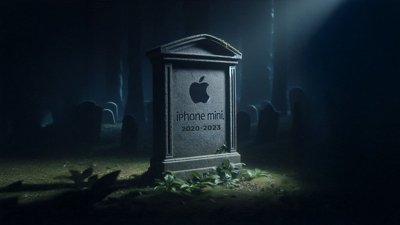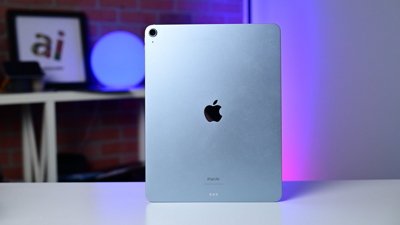The Chinese-made TP-Link router used by Amazon, hundreds of ISPs, and 65% of the US market, is facing an investigation that could see it banned by the government.
Unspecified sources say that the Commerce Department under President Biden has already subpoenaed TP-Link. Between the three Departments, it's possible that TP-Link will be banned at some point in 2025 — which obviously puts it under the Trump administration.
If a ban takes place, it is remarkably similar to the Trump administration's ban on Huawei technology in 2019. It's also close to how in 2022 the Biden administration's FCC declared Kaspersky anti-virus software to be a national security risk.
Now according to the Wall Street Journal, the US Commerce, Defense, and Justice Departments have each opened probes into China's TP-Link.
TP-Link rose to prominence in the US during the pandemic, going from a 20% market share to a 65% one in December 2024. More than 300 ISPs provide TP-Link as their default router.
As well as domestic users, TP-Link is reportedly now being used extensively at NASA, the Defense Department, and the DEA. The Biden Administration is considering a full purge of all installed TP-Link routers in federal service, though.
Security is the central concern for the investigations. While TP-Link routers are not specifically linked to the Salt Typhoon attacks, the three Departments are concerned that such action has exposed vulnerabilities that TP-Link is allegedly slow to resolve.
The Justice Department is also concerned with the pricing of the routers. The suspicion is that TP-Link routers are priced artificially low in order to get them into US firms.
It's also alleged that these routers may have been used in order to conduct cyber attacks on organizations including the Department of Defense.
Consequently the Justice Department is also looking at whether the company is violating the federal law that prohibits undercutting prices to create a monopoly. TP-Link denies the claim, and says that it will cooperate with the investigations.
"We welcome any opportunities to engage with the U.S. government to demonstrate that our security practices are fully in line with industry security standards," said a TP-Link spokesperson, "and to demonstrate our ongoing commitment to the US market, US consumers, and addressing US national security risks."
Should there be a ban, it would enacted in the same way as the Huawei one, which saw that technology being actively removed from government installs. Given the prevalence of TP-Link routers in homes, though, it's impossible that every domestic installation of every model could be replaced.
That means, however, that a ban on national security grounds would almost certainly lead to an escalation of security issues. Even if TP-Link were allowed to continue operating in the US, it would be unlikely to carry on updating software for existing routers.
Such a ban would benefit US firms such as Netgear, although it would contribute to the ongoing US/China trade tensions.
Separately, Congress recently wrote to the Department of Dense about China's dominance in the display market.
 William Gallagher
William Gallagher







-m.jpg)






 Amber Neely
Amber Neely

 Christine McKee
Christine McKee
 Andrew Orr
Andrew Orr

 Sponsored Content
Sponsored Content










30 Comments
We are either in the early stages of World War 3 (or WW4, if one calls the Cold War WW3), or in the late stages of the pre-war stage. It's akin to the time between Germany's annexation of the
The modern analog to the invasion of Poland might be when China takes Taiwan. That analogy will break down, though, when the US (acting in the analog role to the UK) decides to just let Taiwan go rather than go to war over it. But that won't mean the war is averted, only that it will take longer.
The main question is just how hot or cold will the war be. So far it's hotter than the Cold War but colder than WW2.
In any event -- yeah, we need to be very careful about Chinese equipment. The CCP is an enemy.
There is zero chance TP-Link routers are used anywhere within the DoD or even the rest of the government. There might be contractors using them though.